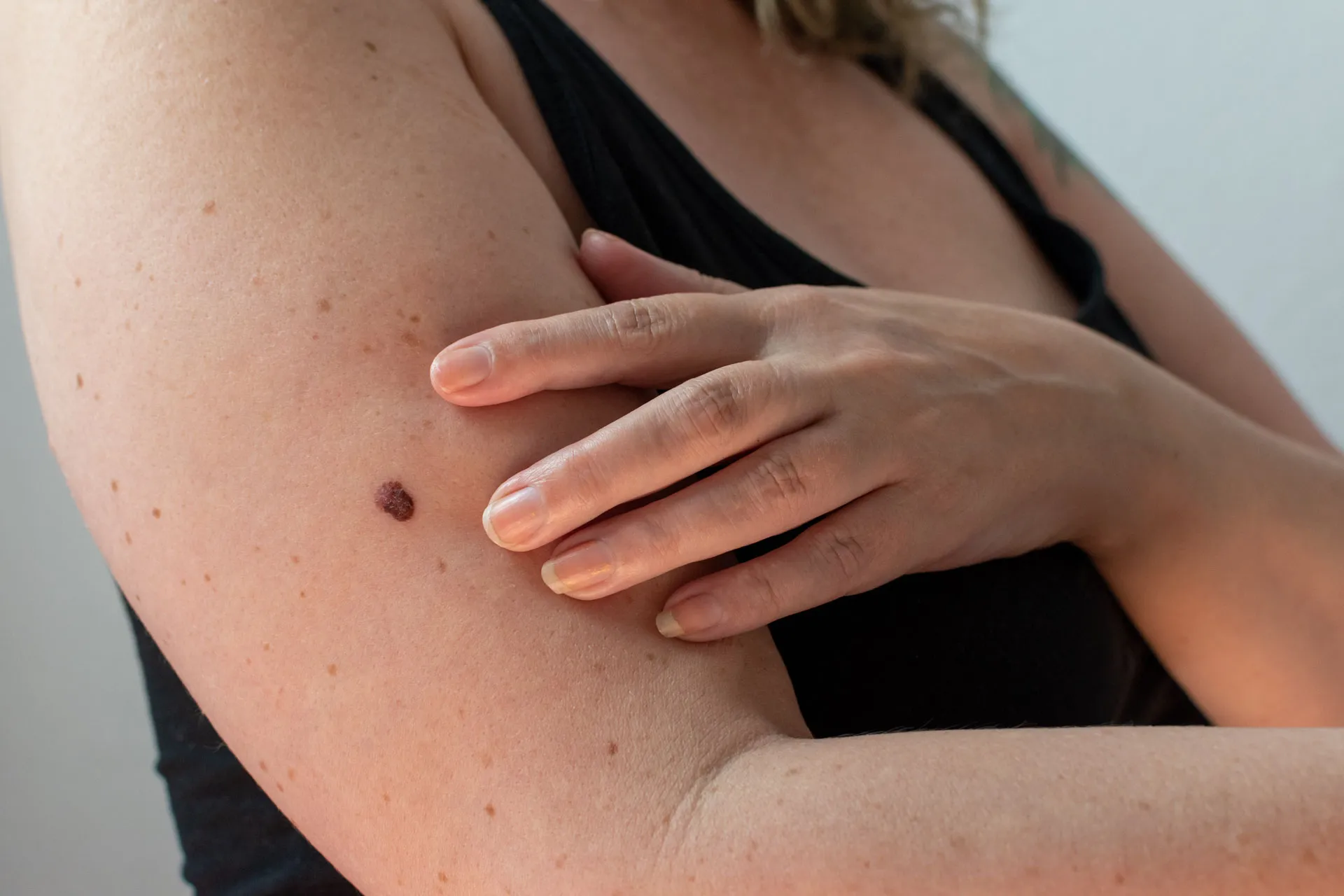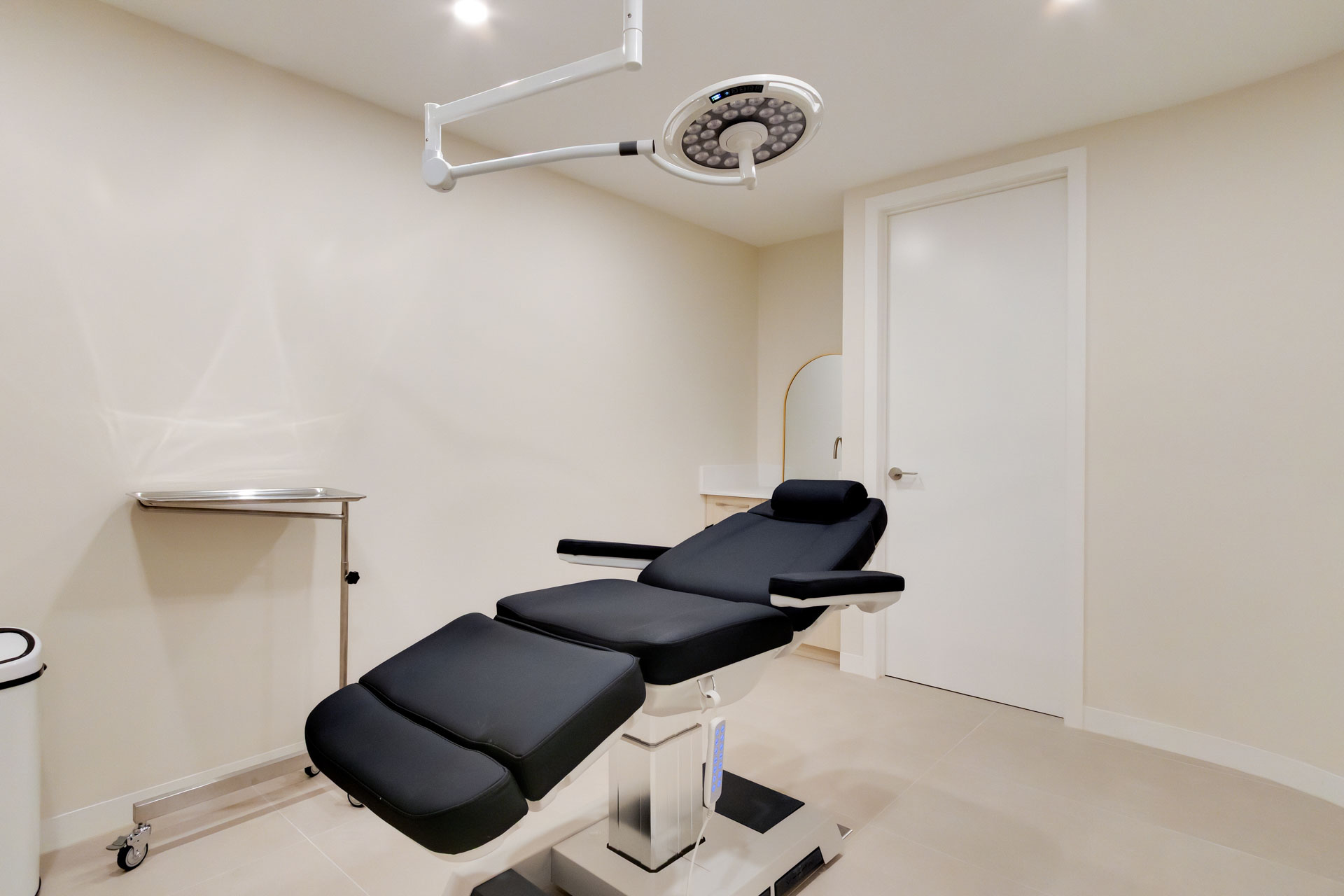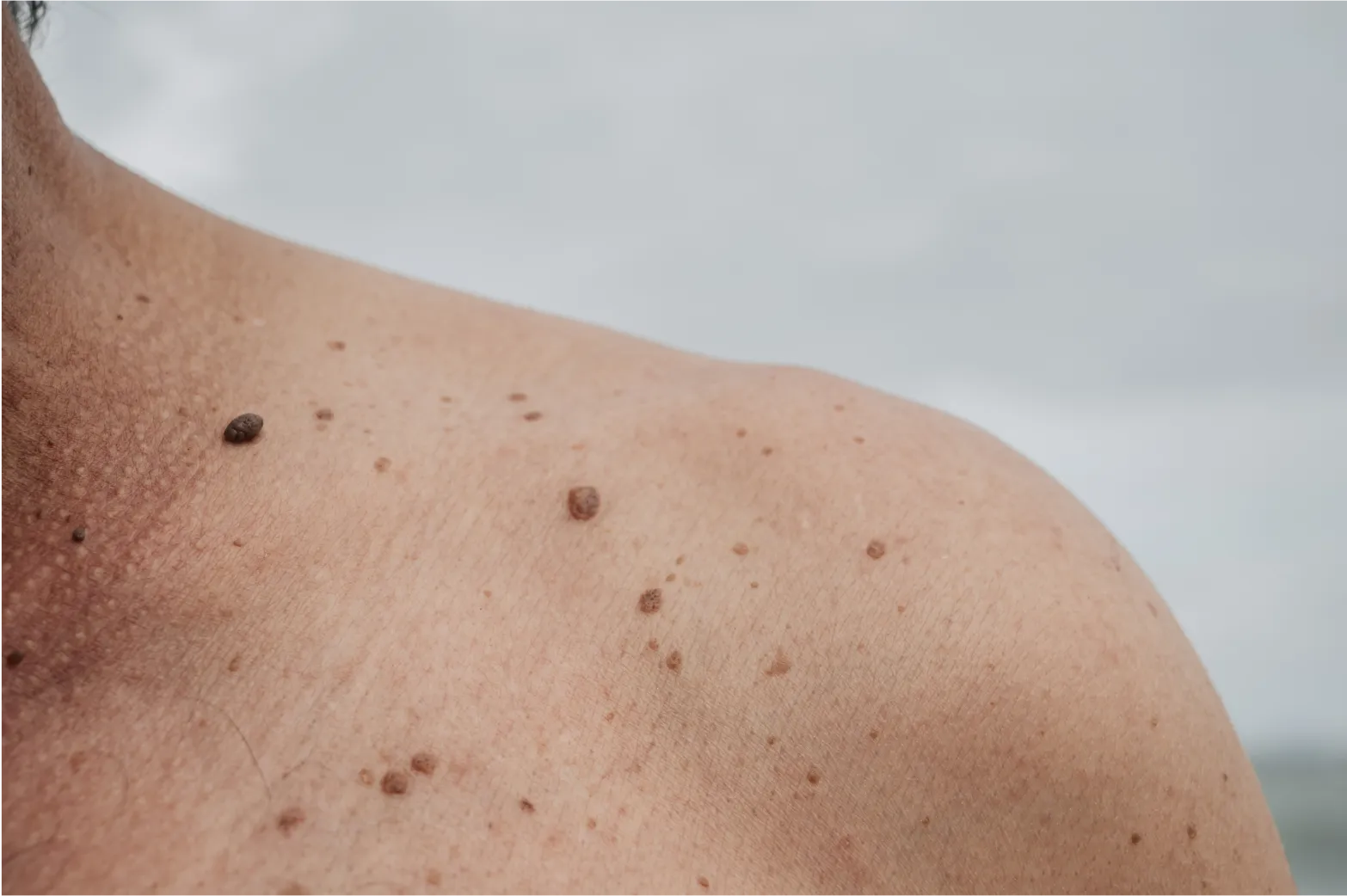Skin cancer

Skin cancer
What is skin cancer?
Skin cancer occurs when abnormal cells in the skin grow uncontrollably, often due to long-term sun exposure. It’s the most common cancer in Australia, but when caught early, it’s also one of the most treatable.
There are different types — including basal cell carcinoma, squamous cell carcinoma, and melanoma — each with its own risks and treatment approach. Some appear as new spots, while others develop from changes in existing moles. That’s why expert diagnosis matters.
Why skin cancer needs specialist care
Not all skin cancers are visible at first glance — and not all suspicious spots are cancer. That’s why seeing a dermatologist is so important.
Accurate diagnosis
Dermatologists know what to look for. We identify skin cancers that others may miss — and rule out harmless spots that don’t need treatment.
On-Site treatment & surgery
From biopsy to excision, our clinic offers medical and surgical care under one roof. There’s no need to go elsewhere — we handle it all.
Non-surgical options
Not all skin cancers require excision. We offer advanced, non-surgical treatments such as laser-assisted therapies and photodynamic therapy (PDT) to target and destroy cancerous cells without cutting the skin. These options are ideal for suitable early-stage lesions and areas where surgical healing may be difficult.
Ongoing monitoring & support
Skin cancer care doesn’t end after treatment. We provide regular skin checks, education, and follow-up to reduce your risk and catch concerns early.
Surgical treatment, handled by a specialist
When skin cancer requires removal, precision matters. At our clinic, all procedures are performed by a qualified dermatologist trained in both medical and surgical dermatology. That means your diagnosis, treatment, and reconstruction are handled by the same expert — from start to finish.
We use advanced surgical techniques to ensure complete removal while conserving as much healthy tissue as possible. Where needed, we also manage complex closures and repairs for the best possible cosmetic and functional outcomes.

What to expect during treatment
Expert-led diagnosis
Using magnification and dermoscopy, we carefully examine your skin for any abnormalities, prioritising accuracy and early detection.

On-the-spot biopsy and treatment planning
If a suspicious lesion is found, a biopsy can often be performed on the same day. Once confirmed, we create a precise treatment plan, which may include surgical excision or other medical therapies depending on the diagnosis.

Ongoing support and prevention
You’ll receive tailored education on your skin type and risk profile — plus advice on preventing future skin cancers. We make sure you’re informed and supported throughout the process, with clear communication every step of the way.

Why early detection saves lives
Skin cancer is one of the most treatable forms of cancer — but only when caught early. Delaying diagnosis can lead to more invasive procedures and increased risk of complications.
Dermatologists are trained to identify subtle signs others might miss. With professional screening, you’re not just getting peace of mind — you’re getting a real chance at early intervention and better outcomes.

Our most commonly asked questions
Any new, changing, or unusual spot should be checked — especially if it bleeds, itches, or grows over time. Look out for asymmetry, irregular borders, uneven colour, and diameter larger than 6mm. But some dangerous spots can look subtle, which is why regular checks with a dermatologist are vital.
Most people benefit from annual checks, but if you have a history of sun exposure, skin cancer, or a family history of melanoma, you may need more frequent monitoring. Your dermatologist will recommend the right schedule for you.
In most cases, a small biopsy will be taken during your appointment. It’s a quick and straightforward procedure done under local anaesthetic. If the result confirms skin cancer, we’ll explain your treatment options clearly and promptly.
Yes. Many diagnostic and treatment procedures for skin cancer — including biopsies and surgical excisions — are eligible for Medicare rebates when performed by a dermatologist. We'll guide you through any costs and rebate options during your consultation.
Most skin cancer treatments are minimally invasive and well-tolerated. Some may involve small surgical excisions, which require short recovery times. We prioritise precision techniques to reduce scarring and keep downtime minimal.

Ready to take the next step in your skincare?
Whether it’s pigmentation, scarring, rosacea or skin cancer, we’ll provide a clear diagnosis and a treatment plan tailored to your skin’s needs. Call us today or book a consultation to start your specialist care.

